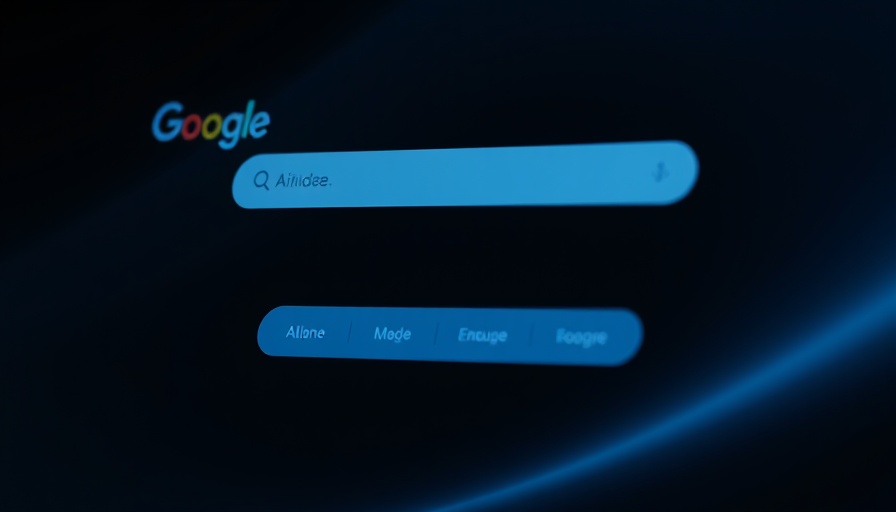
The Future of Search: AI Revolutionizing Google
Imagine a world where your online searches yield not just links, but comprehensive AI-generated summaries that bring clarity and depth to the information you seek. Google is testing a radical new feature powered by its Gemini 2.0 AI, transitioning to an 'AI-only' search results page that could fundamentally reshape how users interact with the web.
What is Google's AI Mode?
Currently in beta, Google's AI Mode eliminates the traditional blue links from the search results, replacing them with AI-generated summaries for any query. This innovative tool aggregates information from various sources, presenting it in a cohesive, article-like format. According to Robby Stein, Alphabet's VP of Product, this feature aims to meet the demand from power users for more AI responses across a wider range of searches.
The Underlying Technology: Gemini 2.0
Google's AI Mode is built on its sophisticated Gemini 2.0 model, which is known for its advanced reasoning capabilities. It synthesizes complex data into user-friendly summaries, making the AI both a reliable information source and a conversational partner. This shift marks a significant step towards a more intuitive search engine experience, as researchers and casual users alike can now find substantive answers without sifting through an overload of links.
Why This Transition Matters
The implications of an AI-centered search engine extend beyond user convenience; they challenge traditional models of information dissemination and content creation. Currently, Google generates significant revenue from ads paired with search results. By shifting towards AI summaries, the company faces new scrutiny over the impact on original content creators. For instance, Chegg, an educational tech company, recently sued Google, suggesting that the AI previews could diminish the necessity for original materials and disrupt the publishing industry.
The Competitive Landscape: Google vs. Competitors
Google's foray into AI search is not occurring in a vacuum. Competitors like Microsoft and OpenAI are also innovating in search technologies, with ChatGPT expanding its search capabilities to include AI responses. As Google pushes forward in this direction, its battle for dominance in the AI space intensifies. The landscape is evolving, with traditional players scrambling to adapt to a new paradigm where AI takes the front seat.
Empowering Users: The AI-First Experience
The transition to AI-only search results invites critical questions about information integrity, user empowerment, and the role of AI in shaping perceptions. Users may now have access to deeper insights, but will they also inherit the biases inherent in AI systems? Moreover, the need for transparency in AI-generated content becomes paramount. If users can engage with intelligent summaries, they must also understand the basis and reliability of this synthesized information.
What Lies Ahead?
Looking to the future, we can expect AI-powered search engines like Google's AI Mode to spearhead emerging trends in data retrieval. As more users embrace AI-first experiences, potential developments might include personalized AI responses, smarter algorithms that learn user preferences, and reliability checks that prioritize factual accuracy.
As we consider these changes, it is vital to ponder the ethical implications surrounding AI technologies. Will AI contribute positively to our quest for knowledge, or will it create barriers by filtering information through potentially flawed lenses? As users, remaining vigilant about the sources of our information is more important than ever.
Conclusion: Join the Conversation
The prospect of an AI-only Google search results page opens up an exhilarating landscape for technology enthusiasts. Users must navigate the fine line between leveraging AI advantages and ensuring their information remains trustworthy. Are you excited about this potential shift, or do you have concerns? Join the conversation and explore how this new technology can reshape not just searching, but our broader internet culture.
 Add Row
Add Row  Add
Add 




 Add Row
Add Row  Add
Add 

Write A Comment